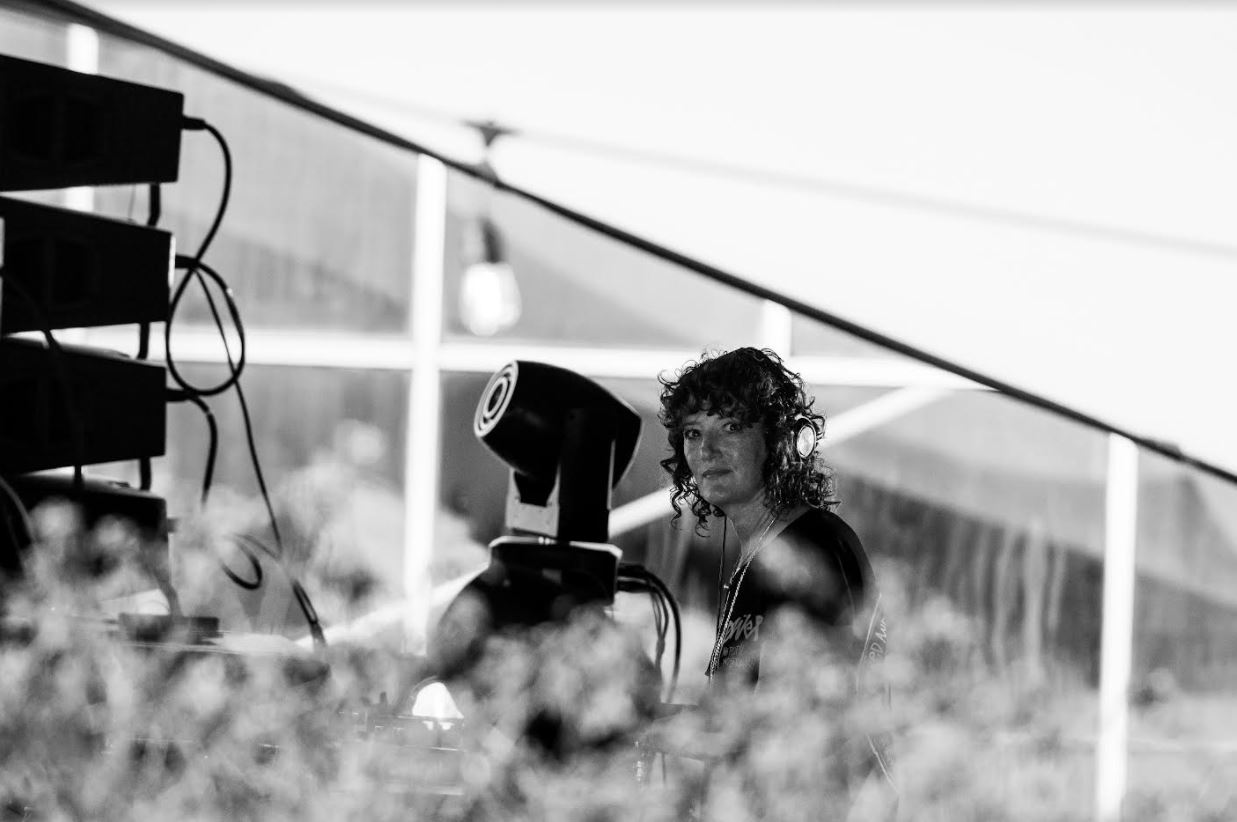

Community
10 Questions with DJ Aoife Nic Canna
Aoife Nic Canna is a Dublin-born, but Limerick raised DJ. Picture: Karen M. Edwards Photography
10 Questions with DJ Aoife Nic Canna
By I Love Limerick Correspondent Ann Mc Donald

Aoife has been in the music industry for over 25 years and regularly tours Ireland
Aoife Nic Canna was born in Dublin and raised in Limerick as a young and budding teenager. For over 25 years, she has been a central figure in the Irish dance music scene and has been dubbed ‘The First lady of Irish House’ by Hotpress magazine.
She has had several residencies under her belt, from the Rock Garden, The Kitchen and an eight-year residency in Rí-Rá, it’s no wonder she has become one of Irelands front-runners. She has a fresh and innovative mixture of music, and the ability to see a good opportunity when it arises.
Her hectic schedule keeps her at near full capacity, and she has regular slots in the Liquor Rooms, Ukiyo and Opium Dublin. She also tours Ireland regularly, with appearances in Cork, Limerick and Belfast, believing Limerick to be a naturally vibrant and musical city.
Her pet project was a six-part audio documentary on Irish club history called, “Folklore from the Dancefloor,” which was broadcasted in July 2012.
What was your childhood like and where did you grow up?
The 70s and 80s in Ireland was very different than today. I started in Rathgar then Rathcoole, Blessington and we settled in Limerick City. Dublin was all about gaelscoils, The Céilí and Gaeilge. Limerick in my teens was more urban as we were in the city, so it was the Belltable after school and record shops.
When did you decide to get into music?
I didn’t decide. I just collected records from a very young age, then going to indie clubs and gigs like the Pink Elephant, Sir Henrys and Mc Gonagals, I had loads of records so becoming a DJ was a natural progression for me.
Who are your main inspirations?
Record shopping and going to clubs. When the dance rave scene began, I started to DJ, so I just got the inspiration to play my own journey of tunes.
Is there anyone you’d like to collaborate with?
I have done loads of great collaborations as projects and I’m sure I’ll do more, I’m more of a loner DJ, I don’t like to get stuck in the one place or crowd, I get bored. I like to expand, so that probably leads me to collaborations.
Tonight playing The botanical Garden @OpiumDublin pic.twitter.com/PO8YjRaS5O
— Aoife Nic Canna (@AoifeNicCanna) December 6, 2019
How have you found making music during the pandemic?
I don’t make it. But collecting it has been good, more people have been creative and staying at home not distracted and are producing new fresh music. I did lots of livestreams, but they’re not the same as live gigs with people. Livestreams saved my ass and sanity during the pandemic.
How do you think the music scene is growing and changing?
Better for sure, we didn’t get exposure to making music back in the 90s, now we do with much better technology. Social Media really is an amazing tool to share your music, connect with like-minded people and to find the right audience, especially if you’re good. As for clubs and venues, there is no comparison to venues you have now like Mickey Martins, The Commercial, Pharmacia and Melody. Kevin Barry (the writer) and I had our work cut out for us running dance clubs in the 90s in Limerick.
What has been your greatest achievement so far?
Folklore from the Dancefloor is a 6-part audio documentary I made back in 2012 about Irish dance music history. Playing in France, NYC and other places abroad was fun. Limerick man Niall Dempsey, who is chief operations manager in Eden and Panama, he’s doing great things on mainland Europe and all over. He organized a brill gig for me in Ibiza. I also played Backwards, and every DJ wants to play Backwards.

Aoife was born in Dublin and raised in Limerick
Do you have any advice for any aspiring DJs?
Collect music digitally or records, whatever suits and find your style or preference, know exactly what music you want to share to a dance floor. Don’t tell me you want to be a DJ and say you like everything or you’re not sure music-wise, you really can’t be a DJ if you don’t have a passion for music, you have to know what you would like to play to identify your sound and learn how to put tunes together. If you get a chance to gig, try to read the crowd, chill until they are ready to dance, and learn how to warm up a crowd. I think the warmup is crucial to a good night.
Are you working on anything at the moment?
I do have exciting gigs coming up, I’m just looking forward to get back to more normality and regular gigs. Maybe some in Limerick.
And lastly, what do you love most about Limerick?
The arts have always been good here, and I got exposed to a lot growing up here. Anything from film clubs to extra art classes. I like to see how strong and important it is in the city today. The community vibes like the parish we grew up in the inner city, the connection you have with a family, like if you hang with one person your parents know their folks, their grandparents knew mine. It’s a really nice feeling that I still feel it when I’m there. If you know one of us, you know us all. It’s a huge part of my identity. It was a community that gave a lot to me so I always hope and try to give back when I can. I love Limerick!!!
For more about Aoife go HERE
For more 10 Questions stories go HERE















